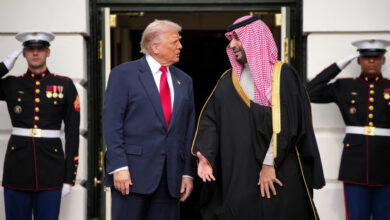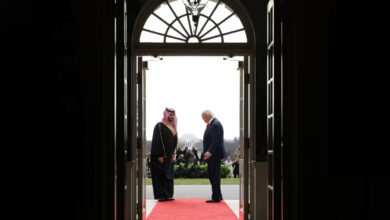
“There is strong demand for our crude but we are sticking to our OPEC commitments,” the source, who is familiar with the kingdom’s oil policy, said on Wednesday.
“In order to meet its OPEC quota and meet its domestic demand during summer, Saudi Arabia has made big cuts in allocations internationally by more than 600,000 bpd for the month of August,” the source said.
Crude exports for August will fall to their lowest level this year at around 6.6 million bpd, the source added.
Crude allocations to Asia for August will be reduced by about 200,000 bpd to 3.5 million bpd, while allocations to Europe will be down by around 70,000 bpd at 520,000 bpd.
Oil majors were allocated some 200,000 bpd less in August at 780,000 bpd.
Exports to the United States will be below 800,000 bpd in August, the source said.
Saudi Arabia told the Organization of the Petroleum Exporting Countries its oil production in June rose to 10.07 million bpd, slightly above its OPEC target, mainly due to an increase in domestic crude burning for power during summer.
The source also cited late May port closures as pushing some cargoes into June, which may have resulted in higher June exports. The source said July oil output would be lower than June, without providing details.
“Saudi Arabia is keen to see an improvement in the oil market and accelerate the balancing process, and expects other producers to do the same,” the Saudi source said, adding that there are signs of improvement in market fundamentals.
“While supply is not increasing except from exempt countries such as Libya and Nigeria, demand is picking up and we are starting to see inventory draws in total petroleum stocks in recent weeks.
“Saudi Arabia will continue to work closely with other producers to monitor and stabilize the market by making sure that production cuts are continuing,” the source said.
A joint ministerial committee from OPEC and non-OPEC countries including Saudi Arabia and Russia, the world’s biggest oil producers, will meet on July 24 to discuss compliance with a supply-cut pact and review the rise in output from Nigeria and Libya. Both countries were exempted from the production cuts.
The Saudi source said ministers would discuss several ideas at the meeting and that the recent rise in output from Nigeria and Libya “is not big in a way that should disturb the market”.
He declined to comment on further steps OPEC could take to re-balance the market.




